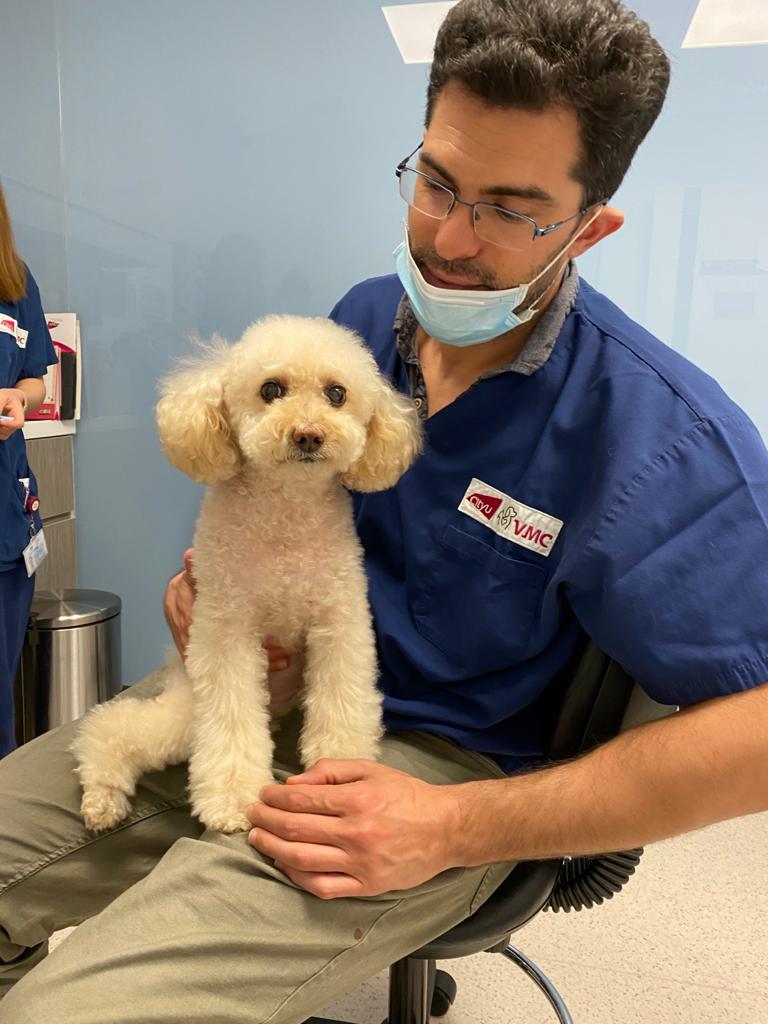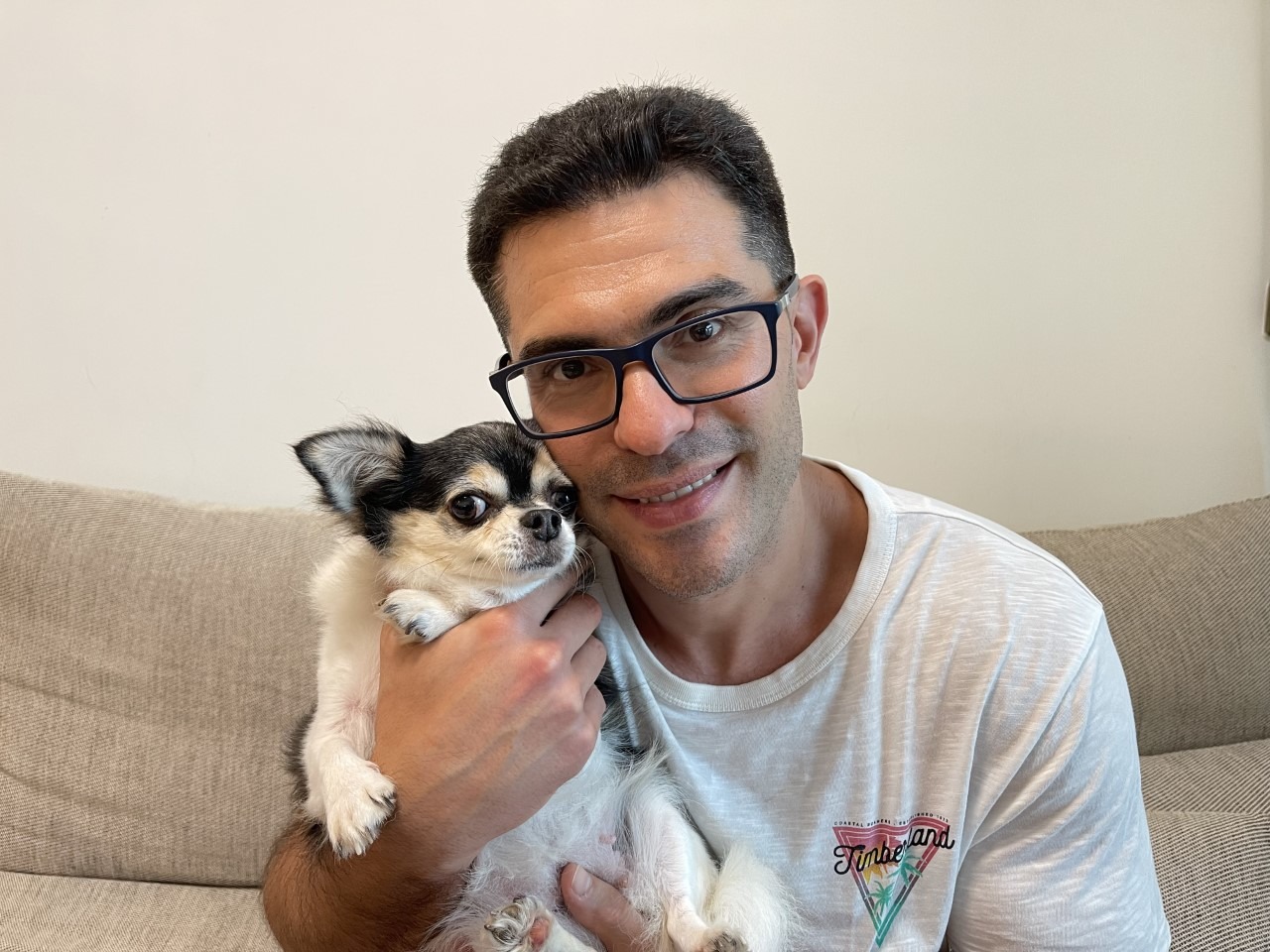no-repeat;left top;;
auto
Antonio Giuliano is a member of the WSAVA’s recently launched Oncology Working Group. He is an Italian veterinarian and small animal oncologist working in Hong Kong.
no-repeat;left top;;
auto

Dr Antonio Giuliano
Could you summarize your career briefly?
I graduated in 2007, in Italy and worked for couple of years as a general practitioner (GP) while studying for a Master’s degree in Oncology. I then moved to the UK in 2009 where I worked in general practice. I completed a general rotating internship a few years later and achieved Certificates in internal medicine and oncology. This was followed by a residency at the University of Cambridge. Once I had completed it, I stayed on for a further year as an oncology clinician.
For the last two years I have been working at the City University Veterinary Medical Centre in Hong Kong. It is one of the largest multidisciplinary small animal referral centers in Asia. I recently accepted the position of Associate Clinical Professor in Oncology at the Jockey Club College of Veterinary Medicine and Life Sciences at the University of Hong Kong.
horizontal
Could you describe your ‘day job’?
As a small animal oncologist, I see cancer patients referred by GP veterinarians from all over Hong Kong. These include both newly diagnosed oncology cases for consultation, assessment, and treatment, as well as suspected cancer patients for work up and final diagnosis.
I often see challenging cases with various comorbidities and/or with cancer at an advanced stage.
Communication with the owner is very important in Oncology and it can be challenging in Hong Kong as not everyone can speak fluent English. I am lucky to work with veterinary nurses and translators who help me with communication.
What triggered your interest in oncology and why do you find this area of veterinary practice so interesting?
As a new graduate, I discovered how common cancer is in pets, yet my knowledge of oncology was very poor. Even my skilled and experienced colleagues, at that time, did not have comprehensive knowledge on the subject. I was frustrated. Despite having spent so many years studying at university for a degree with the best marks, I was still not able to help cancer patients.
I started to study both veterinary and human oncology books and became so fascinated by both cancer biology and medical oncology, that I have not stopped studying it since! When people ask me why I chose oncology, I am always surprised by the question. How can you NOT be interested in the most common cause of death in pets and people? How can you not be fascinated by the mystery of life and death?
no-repeat;left top;;
auto
Oncology in both human and veterinary patients is in continual evolution, with new discoveries, new technologies, new diagnostic tools, and new drugs/treatments appearing every year. How can this not be exciting?
Last but not least, there is no greater reward than to cure a pet suffering from cancer, or just make them feel better, even if only for a year or a few extra months. The appreciation and gratitude of their owners is also very motivating.
no-repeat;left top;;
auto

full
You’re a member of the WSAVA’s new Oncology Working Group, how’s it going so far?
I think it is going very well! I am very happy to be part of such an amazing, knowledgeable and skilled team. We are of different nationalities and professional backgrounds, but we have in common our passion for oncology and a desire to improve knowledge, management and the treatment of cancer patients all over the world.
What plans does the Group have to raise standards of veterinary oncology globally?
First, we want to prioritize what WSAVA members need from us most urgently and the survey we are conducting will help us to determine this. Meanwhile, we have already started to collaborate with the WSAVA’s official scientific journal, the Journal of Small Animal Practice, in collating useful articles on oncology which we hope to offer free of charge from the WSAVA website.
We know how busy and stressful every day can be for veterinarians can be and that there isn’t always time to read long articles to access the information they need. For this reason, we are also preparing ‘quick and easy’ consult slides covering topics such as biological behavior, diagnosis, treatment and prognosis for common cancers in pets.
We have much more planned so stay tuned for more information coming soon!
If you could give WSAVA members one piece of advice about veterinary oncology, what would it be?
It is extremely important to understand the general biological behavior, treatment, and prognosis for each type of cancer. But, remember that each patient, even with the same cancer, is different and their management must be individual. Cancer is not a static disease. It changes over time so the approach and treatment to each patient will often need to be adjusted or changed.
What do you enjoy doing outside work to relax?
I love to travel but unfortunately now is not a great time to do this because of the pandemic. I am lucky to live in Hong Kong. It is an amazing place, full of beautiful small islands, beaches, places to hike and astonishing landscapes to visit, relax or just walk in.
I have a small Chihuahua called Booby and I enjoy walking with her. I also love to watch movies and am trying to learn a bit of Cantonese – which is very challenging!
Could you tell us something about you that may surprise us?
I love to volunteer for veterinary charities that take care of monkeys. I have previously travelled to South Africa and, with the help of two colleagues, neutered 37 Vervet monkeys!
no-repeat;left top;;
auto
Take the Oncology Working Group Survey
https://docs.google.com/forms/d/e/1FAIpQLSdJyMtS9zyliZ2gDnX2NbAtWLLd7XiRNaviwdiWEG08zPej8A/viewform
fas fa-question-circle
left
2
